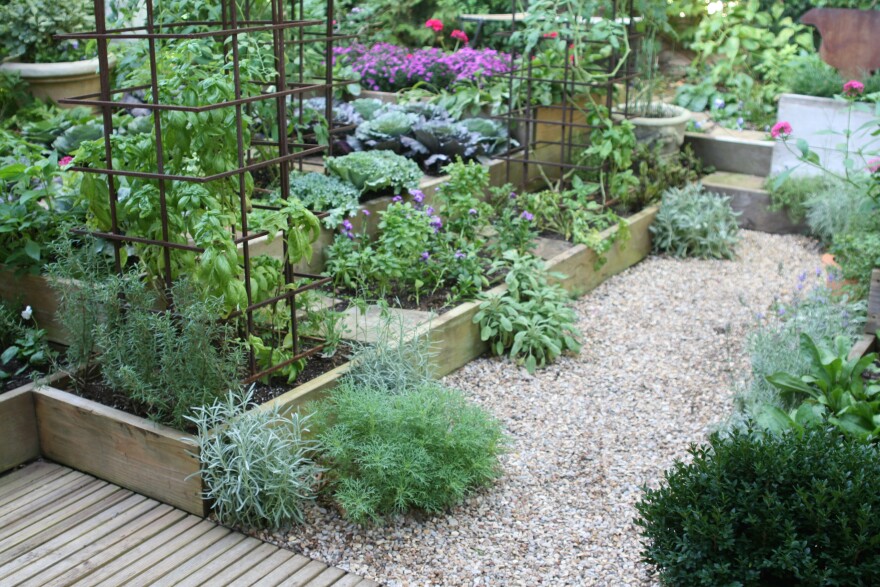One of the biggest trends in the last 20 years in vegetable gardening has been the expanded use of raised beds. It's not a new idea, but it seems everyone is embracing a raised bed to grow better tomatoes, lettuce, carrots, and many other crops.
It's a smart idea. Raised beds are more productive. The soil warms and dries out faster and it doesn't get compacted because you don't have to step on the beds. Raised beds are easier to weed, water, and fertilize.
The best type is a raised bed with a border. You can use wood, stone, brick, logs, or concrete blocks to make your raised bed.
For wood, use rot-resistant types, such as cedar and composite wood. We got a good deal on some hemlock boards five years ago and our beds still are in good shape. Avoid pressure treated lumber. If you do have them, line the inside of the beds with plastic to create a soil barrier.
Build your beds three to four feet wide and as long as you like. Don't bother killing the grass under the bed unless it's loaded with tenacious weeds like quack grass. If building on grass or soil, build the bed eight inches tall. On impervious surfaces like asphalt, build it one foot tall.
If you have problems with mice and voles tunneling in your bed, line the bottom with half an inch of thick hardware cloth. Brace the corners of the bed so it doesn't warp over time and fill it with a 60/40 mixture of topsoil and compost. Mulch to preserve moisture and enjoy the veggie harvest.
Next week on the Connecticut Garden Journal, I'll be talking about foodscaping. Until then, I'll be seeing you in the garden.





